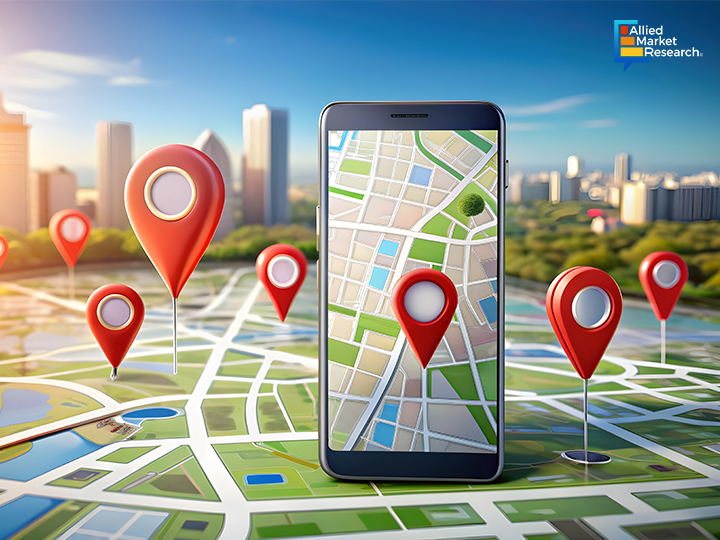How Are Location-Based Services Enhancing Business Operations and Customer Engagement?

8 Jan
2025
In the increasingly digitalized world, networked systems are becoming the foundation of business-related trade. The collection and analysis of data form the basis for numerous entrepreneurial activities and thus enable the opening of completely new business fields. With the help of Location Based Services, the positions of persons or objects can be easily located. The location-based data can then be used to provide people with information relevant at a particular time and location. On the one hand, this simplifies work processes in companies, and on the other, it can also be used as a navigation aid.
Fraud prevention and safety
Online purchases are everyday occurrences. Unfortunately, so is fraud. Nearly 80% of people check their financial and credit accounts weekly for suspicious activity. Merchants and financial institutions can use location-based services to identify and prevent fraud. A quick pre-purchase verification that geographical and credit card profile data match can hinder would-be cyber-thieves.
When people aren’t highly visible, they could be vulnerable. Populations on college campuses are a case in point. Late-night classes, walking alone, dimly lit streets, and remote campus paths can all contribute to a lack of safety for students, staff, workers, and visitors. Location-based services that power apps and other permission-based location tracking can help security teams protect campus and throughout the community.
Personalization in marketing and increased ROI
Location-based services give marketers a keen advantage. Knowing which customers and prospects are within a specific area makes tactics such as targeted digital advertising more effective. The right message sent at the right time speaks volumes, and mobile users are more likely to act on it if it’s convenient. Location data is a goldmine of information that can provide valuable insights into consumer behavior, preferences, and trends. By tracking where customers are located, businesses can deliver hyper-targeted content, offers, and recommendations that are tailored to their specific needs and interests.
This level of personalization not only drives engagement and loyalty but also increases conversion rates and ROI. Its key features include real-time tracking of customer locations, geo-fencing capabilities for targeted marketing, personalized recommendations based on location, and optimized delivery of content based on location. According to a recent study by Forbes, businesses that leverage location data for personalization see a 15-20% increase in sales and a 25% increase in customer loyalty. This highlights the immense value that location data can bring to businesses looking to maximize their personalization efforts. This in turn also contributes to the expansion of the location-based services market.
Workforce management and improving operations
Among the most important assets in any organization is its people. For companies with workers in the field or spread across multiple locations, management can be tricky. Location-based services help improve communication and accountability with seamless processes like mobile check-in from any device and any geography. With the help of asset tracking, goods and operating equipment can be easily localized via beacons. This saves long waiting or search times in the production process.
To sum up, location-based services have the potential to revolutionize the way companies interact with their users and drive business growth. By incorporating these services into their software applications, companies can create more meaningful and engaging experiences for their users, ultimately leading to increased satisfaction and loyalty.

Koyel Ghosh
Author’s Bio- Koyel Ghosh is a blogger with a strong passion and enjoys writing in miscellaneous domains, as she believes it lets her explore a wide variety of niches. She has an innate interest in creativity and enjoys experimenting with different writing styles. A writer who never stops imagining, she has been serving the corporate industry for the last five years.
Advancements in Supply Chain Management: Role of IoT in Expanding the Scope of the Industry
Avenue: Entire Library membership of Allied Market Research Reports at your disposal
- Avenue is an innovative subscription-based online report database.
- Avail an online access to the entire library of syndicated reports on more than 2,000 niche industries and company profiles on more than 12,000 firms across 11 domains.
- A cost-effective model tailored for entrepreneurs, investors, and students & researchers at universities.
- Request customizations, suggest new reports, and avail analyst support as per your requirements.
- Get an access to the library of reports at any time from any device and anywhere.
Related Post
-
How are Submarine Cables Transforming Global Connectivity with Enhanced User Experience?
-
Endoscopy Procedures: Transformations in Techniques and Applications
-
AI-Powered Video Analytics: How the Product Actually Works for enterprises
-
Painting Robots: Transforming Precision Coating and Creative Applications
-
Innovations in Pharmacovigilance Systems Advancing Patient Safety
-
Understanding Edge Security: Keeping Data Safe Near the Source
-
Exploring the Use and Advancements of 3D Laser Scanners in Professional Applications
-
Reinforcing Industrial Controls with Smarter Tools and Training








